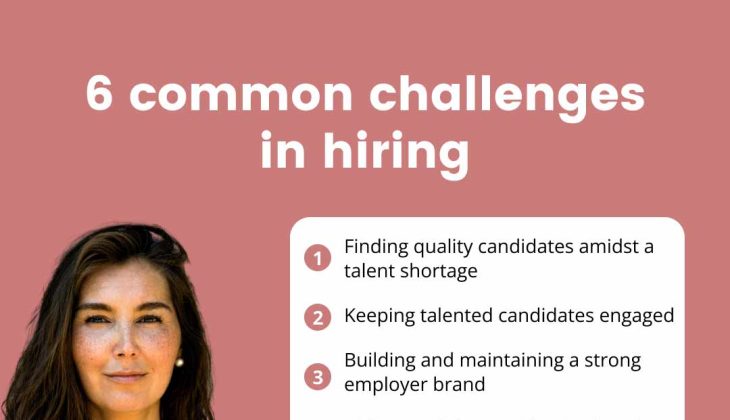Quick Overview
- Pinpoint the essential qualities you should look for in new employees for your small business.
- Learn how to design job postings that will catch the eye and attract top-notch candidates.
- Find out which platforms and networks are the best for finding your next stellar employee.
- Learn how to conduct interviews that will truly reveal a candidate’s potential.
- Learn how small businesses can use ERTC funding to expand their workforce.
Building Your Dream Team: Mastering Hiring for Small Businesses
As a small business owner, putting together a strong team is like putting high-octane fuel in your engine – it can really make your business fly. You need people who not only have the skills, but also buy into your vision and can grow with your company. That’s why it’s so important to hire the right people, and I’m here to help you do just that.

Why Hiring is Important for Your Small Business
Hiring is not just about filling a role in your company. It’s about finding someone who will help your business grow and stay long enough to make a difference. The right person can make your business run smoother, bring in new ideas, and even increase your profits. However, hiring the wrong person can cost you in time, money, and employee morale. So, it’s important to hire the right person the first time.
What to Look for When Hiring New Employees
When you’re searching for a new addition to your team, you want to look beyond their CV. Of course, their experience and abilities are important, but there’s more to a good employee than what’s written on their application. Here are some key qualities to watch for:
- Adaptability: The pace of small businesses is fast and plans can change quickly. You need someone who can keep up with the changes.
- Passion: Find someone who is excited about what you do. They will not only work harder, but they will also inspire the rest of your team.
- Team player: Your business is like a sports team – everyone needs to work together to win. Look for people who can work well with others and support their coworkers.
- Problem-solving: You want someone who doesn’t just identify problems but comes up with solutions and isn’t afraid to take action.
Get Noticed: How to Write Job Listings That Attract Top Talent
To attract top talent, your job listings need to stand out. It’s not just about saying ‘We’re hiring’ – you need to sell your business as the place to be. Think about what makes your company unique and make sure that is the first thing people see in your listing.
Getting to the Point: The 3 Ps of Job Descriptions
Here’s the thing: job hunters don’t have time to read every word of every listing, so you need to make sure yours stands out. Keep your job descriptions plain (no technical language!), punchy (short and to the point), and pithy (easy to remember). Here’s how:
- Clear: Use straightforward language and detail exactly what the job involves and what you’re seeking.
- Concise: Keep it to the point. List the main responsibilities and qualifications, but avoid overloading with information.
- Catchy: Add a little flair! Perhaps it’s a fun company fact or a unique benefit – something that’ll make candidates think, ‘Wow, I want to work there!’
Benefits and Company Culture: Your Hiring Hook
Most importantly, remember to emphasize your company culture and benefits. People want to know what it’s like to work with you. Do you have team lunches, flexible hours, or perhaps a great 401(k) plan? These are the things that can tip the scales in your favor.
Don’t forget, perks aren’t solely about the paycheck. Chances for personal development and education can be equally enticing. Demonstrate to applicants that your business is a place where they can flourish and progress in their professional lives.

Uncovering Talent: Locating the Perfect Applicants
So, where are these outstanding individuals? They’re definitely out there – you simply need to know where to search. And I’m not just referring to the typical job boards. Talent can be found everywhere if you know where to search.
Take Full Advantage of Local Job Boards and Online Platforms
Starting your search on online job boards is a good move. However, don’t limit yourself to just that. Explore local job fairs, community boards, and even websites that are specific to your industry. You may find that they are gold mines for discovering passionate professionals who could be searching for a business just like yours.
Smart Networking: Harnessing the Power of Community Connections
Networking isn’t only a tool for attracting clients – it’s also crucial for recruitment. Engage with your local business community. Attend events, participate in forums, and start conversations. You never know who might be connected to your next standout employee. And remember to use your current team’s networks – they could introduce you to your next Most Valuable Player.
Interviews: The Final Determinant
Interviews are the stage where you really get to know your potential hires. This is your opportunity to see if they’re the perfect match for your company. It’s not just about their qualifications – you want to gauge their character and how they’d fit in with your team.
First Impressions: Preparing for Candidate Interviews
Prior to commencing the interview, ensure you are well-prepared. Understand what you are seeking and have your inquiries prepared. However, also allocate time to make the candidate feel comfortable. A candidate who is at ease is more inclined to be open and reveal their true character.
Asking the Right Questions to Uncover Potential
When you’re interviewing potential hires, make sure to ask questions that will reveal how they approach problems and their work style. Some suggestions include:
- Could you describe a situation where you faced a significant obstacle on the job and how you dealt with it?
- How do you manage stress and high-pressure situations?
- What is something you are passionate about and how do you engage with it?
Questions like these can give you insight into a candidate’s ability to solve problems, their work ethic, and what motivates them. This is the information you need to make an informed hiring decision.
Awesome, you’ve found a potential hire that seems to be just what you’re looking for! However, before they can join your team, you need to make them an offer. This is a critical step because if you handle it correctly, you can secure their services without draining your resources.
Sealing the Deal: Negotiating Terms
When you’re ready to make an offer, remember that it’s not just about the money. Consider the whole package – benefits, work-life balance, and other perks. These can often be just as important as the paycheck. But remember, you need to be smart about it. You’re running a business, and you have a budget to maintain.
Salary Negotiations: Striking a Balance
Striking a balance in salary negotiations can be a complex task, but it’s all about how you approach it. Begin by being transparent about what you can provide. Afterward, hear out what the potential employee is seeking. If there’s a discrepancy, see if there’s an opportunity to compromise. Perhaps there’s a performance incentive or additional vacation days you can add. The secret is to be adaptable and innovative.
Onboarding: Making a Positive First Impression
After the offer has been accepted, the next step is onboarding. This is the period where your new employee learns the ins and outs of their job and begins to feel comfortable in their role. A successful onboarding process can significantly influence how quickly they become efficient and how long they remain with your business.
Firstly, ensure all the mundane tasks are completed before they commence. Paperwork, preparing their workspace, providing them with the tools they require – have it all ready. This way, they can be productive from their first day.
Getting Started: Week One
Focus on training and support during their first week. Give them an overview of their job, introduce them to their colleagues, and ensure they know who to ask if they have questions. Implementing a ‘buddy’ system, where an experienced employee guides them, is a good idea. This is a fantastic way to make them feel included and part of the team immediately.
Don’t forget, training shouldn’t end after the first week. Maintain it with frequent follow-ups and chances for them to develop and advance. This demonstrates that you’re committed to their achievement, and that’s a strong motivator.
Using Mentoring to Foster a Sense of Belonging
Moreover, implementing a mentoring system can make a world of difference for a new employee. Providing them with a mentor gives them a point of contact for any queries they may have, no matter how significant or trivial. It also enables them to form connections and become a part of the team more quickly. Plus, it results in a more content and efficient worker for you.
Keeping Them Happy: How to Maintain Employee Satisfaction
So, you’ve found some amazing employees. Now, how do you keep them? Retention is all about ensuring your team is happy, engaged, and envisions a future at your company. That begins with fostering a positive work environment.
Creating an Atmosphere of Gratitude: Celebrating Staff Accomplishments
Creating an atmosphere of gratitude is essential. Celebrate your staff’s accomplishments, whether they’re big or small. A simple ‘thank you’ can mean a lot, but don’t shy away from thinking outside the box. Group lunches, acknowledgements in meetings, prizes – they all contribute to a team that feels valued and appreciated.
Consistent Advancement: Opportunities for Professional Development
Don’t forget about advancement. Employees want to feel secure in their future with your company. Provide professional development opportunities – training, courses, workshops. This not only enables them to improve in their role but also demonstrates that you are prepared to invest in their future.
Always Strive for Better: Assessing Your Recruitment Procedure
Even if you believe you’ve assembled a stellar team, there’s always a chance for enhancement. Every so often, reassess your recruitment procedure. What’s effective? What’s failing? Feedback from recent recruits can provide crucial information on how to improve.
Feedback Framework: Gaining Insight from New Hires
Establish a feedback framework that allows new hires to provide their opinion on the hiring process. This could be a survey or a one-on-one conversation after a few weeks. Use this feedback to refine and enhance your approach.
Key Metrics: Monitoring Employee Turnover
Also, keep tabs on your key metrics. Whether it’s turnover rates, time to hire, or employee satisfaction scores, these figures can provide you with a wealth of information about the effectiveness of your hiring strategies. If you’re seeing warning signs, it’s time to investigate and determine the cause.
In addition to everything else, it’s important to consider the financial aspects of hiring. Intelligent handling of finances can provide you with extra flexibility to attract and keep the best talent. One method to achieve this is by using the Employee Retention Tax Credit (ERTC).
Unlock Your Small Business Growth with ERTC [Discover More](https://ertcfilingpros.com/)
Comprehending the Employee Retention Tax Credit (ERTC) is crucial for small businesses aspiring to expand their team. It’s a government initiative that provides refundable tax credits for retaining employees during challenging periods. And here’s the kicker – you can utilize these funds to invest in recruitment and training, enhancing your business’s appeal as a workplace.
Consider ERTC as a financial shot in the arm for your company. It’s an opportunity to recoup some money from the government that you can then reinvest in expanding your workforce. And with a straightforward process that takes less than a quarter of an hour, there’s no excuse not to check if you’re eligible.
Want to discover how ERTC can boost your small business? You can take advantage of this chance to increase your refundable credits and use that cash for something important – like recruiting top-notch employees. So why wait? Visit [ERTC Filing Pros](https://ertcfilingpros.com/) and see how they can assist you.
At this point, you have a great team in place and a hiring process that’s effective. However, the business landscape is always changing, and your hiring strategies should be, too. Always be on the lookout for ways to improve and adapt. At the end of the day, the better your team, the stronger your business will be. It’s as simple as that.
Common Questions
Have some questions? I have some answers. Here are the most frequently asked questions small business owners have about hiring.
How can a small business compete with larger companies in hiring?
It’s all about playing to your strengths. Small businesses can offer a personal touch that big companies can’t match. To stand out, consider implementing online growth strategies that highlight your unique company culture and values.
- Accentuate the opportunity to take on diverse roles and develop a broad range of skills.
- Stress your engagement in the local community and the tight-knit atmosphere of your team.
- Provide adaptable work arrangements that may not be possible in bigger companies.
Also, keep in mind that many individuals are seeking more than just a salary. They desire a job that provides a sense of purpose and a business that appreciates their input.
What are the best hiring platforms for small businesses?
There are many platforms available, but here are some that can really help you find the best talent:
- Indeed: Ideal for many types of jobs and user-friendly.
- LinkedIn: Excellent for making connections and locating candidates with specialized industry knowledge.
- Local job boards and community forums: These can be treasure troves for local talent.
Remember to also use your personal social media channels. They are an excellent method to showcase your company’s culture and draw in candidates who are a great match.
What are some effective interview strategies for small businesses?
Interviews provide an opportunity to learn more about the individual behind the CV. Here are some suggestions to help you get the most out of these sessions:
- Employ behavioral interview inquiries to comprehend their past responses to circumstances.
- Query their ambitions and dreams to determine if they match your company’s trajectory.
- Allow them to pose questions. It indicates their interest and provides you with a glimpse into their priorities.
Always trust your instincts. If a candidate looks perfect on paper but doesn’t quite click in person, they may not be the best fit for your team.
How can you work out salaries when funds are tight?
You have to think outside the box and be upfront. If you can’t offer the highest salary, think about other ways to make up for it:
- Offering flexible hours or work-from-home options can be very attractive.
- Additional vacation time or personal days can make the job offer more appealing.
- Providing opportunities for professional development demonstrates that you’re interested in their career growth.
It’s important to always be honest about what you can afford. It’s preferable to set realistic expectations from the beginning rather than promising more than you can deliver.
What are some successful strategies for onboarding new hires?
A well-structured onboarding process can transform a new hire into a dedicated employee. Here are some strategies that have proven to be effective: For example, incorporating small business growth strategies into your onboarding can give new employees insight into how they can contribute to the company’s expansion and success.
- Prepare a detailed plan for their first week to set clear expectations and allow them to start contributing immediately.
- Pair them with a mentor or buddy who can guide them through the initial stages.
- Regularly check in to gauge their progress and offer assistance if needed.
Keep in mind, the objective is to make them feel appreciated and included from the start.
What is the role of company culture in keeping employees?
Company culture is critical. It’s what makes your company a destination where people want to work – and remain. Here’s why it’s important:
- Having a solid culture promotes a feeling of unity and belonging.
- It can enhance spirits and increase efficiency.
- It draws in applicants who align with your principles and objectives.
So, invest the effort to establish a culture that embodies you and your company. It will be worth it.
What pitfalls should small businesses avoid when hiring?
Even the most experienced of us can fall into traps. Here are some common hiring pitfalls to steer clear of:
- Being hasty and not investing enough time to find the perfect candidate.
- Ignoring to verify references or conduct thorough background checks.
- Overlooking the onboarding process and tossing new recruits into the thick of things.
Steer clear of these traps, and you’ll be well on your way to assembling an exceptional team.
How does the Employee Retention Tax Credit (ERTC) help small businesses in their hiring process?
The ERTC can significantly impact small businesses. It’s like receiving a cash rebate for maintaining your staff during challenging periods. Here’s how it can assist in hiring:
- Utilize the financial aid to handle recruitment expenses such as training and onboarding.
- Invest in employee benefits and perks to attract top-notch professionals.
- Allocate the financial resources to salary increments or bonuses to retain your most valuable employees.
It’s a win-win situation – you receive financial aid, and your employees get a better work experience.
Small businesses face unique challenges when it comes to hiring and retaining top talent. With limited resources, it’s essential to develop strategies that not only attract qualified candidates but also foster a work environment that encourages long-term employment. This includes offering competitive compensation, opportunities for professional development, and a positive company culture. Additionally, small businesses can benefit from exploring outsourcing versus in-house strategies to find the ideal operational balance that supports growth and employee satisfaction.

